Description
The Sanskrit term ‘Anuvasana’ means ‘to stay’. Pippalyadi Anuvasana Thailam is a potent formula meant for external application in haemorrhoids, fistula-in-ano, constipation, weakness in lower back and limbs, joint pain etc.
It is meant to stay on the site of application for stipulated periods. This is achieved by means of a Sitz bath, applying cotton swabs soaked in the taila to the affected site (Pichu), or holding the taila in the region in a suitable enclosure (Vasti). Pippalyadi Anuvasana Thailam is also used for rectal enema as a Panchakarma procedure.
Features and benefits of Pippalyadi Anuvasana Thailam –
- Derangement of the ‘Apana vayu’ is characterized by disruption of normal excretory functions, menstrual function, digestion and bowel movement. Supplementing internal medicines with external application of Pippalyadi taila to the pelvic and lower back region is very effective in relieving the symptoms.
- Effective in supporting the treatment of abdominal colic, intestinal gas, decreased bowel motility etc.
- Pippalyadi Anuvasana Thailam is an excellent remedy for constipation, swelling and congestion in an around the rectal opening, itching, pain and discomfort associated with piles, fistula and fissure in ano.
- Applied as Pichu (cotton swabs soaked with taila) or directly to the lower back and joints, it helps in alleviating pain, swelling and rigidity.
- Pippalyadi Anuvasana Thailam is also used popularly for massage of the region around the umbilicus, lower abdomen and pelvis for rectifying menstrual complaints and diseases of the urinary tract.
Quantity sufficient based on area affected and mode of application selected (Abhyanga/ Pichu/ Vasti/ Matravasti/ Kashayavasti).
Key Ingredients:
PIPPALI (Piper longum)
Commonly called Indian long pepper, it is effective in different respiratory tract diseases. It provides relief from cough and congestion and also helps in removing phlegm deposits from the respiratory tract. Also improves appetite and digestion, as well as treats stomach ache, heartburn, indigestion, intestinal gas, diarrhea, and cholera.
MADANA (Randia dumetorum)
Madanaphala, commonly known as Emetic nut is one of the commonly used herbs as an anti-inflammatory, antiviral, antifungal, and antibacterial agents. The name Madana means it produces horripilation and discomfort. It is used to treat the common cold, chronic cough, asthma, and bronchitis. It also helps to stimulate our immune system and make our body cells capable to fight against various serious infections. It is also skin protective in nature. In Ayurveda, the fruit is especially used as a medicine for emesis therapy (treatment by inducing vomiting).
BILWA (Aegle marmelos)
It is known as the favorite of Lord Shiva and thus found in the temples. Also known as Bilwa, the whole part of the plant is used for medicinal purposes. Antidiarrhoeal, antimicrobial, antiviral, radioprotective, anticancer, chemopreventive, antipyretic, ulcer healing, antigenotoxic, diuretic, antifertility, and anti-inflammatory properties.
VACHA (Acorus calamus)
Vacha is an ancient herb having various health benefits. The name “Vacha” in Sanskrit means speaking clearly because this herb stimulates intelligence and expression. In Ayurveda, Vacha is known as a rejuvenating herb because of its effect on the nervous system. It is bitter in taste and is used in the dried form. According to Ayurveda, taking Vacha along with honey daily helps manage speech disorders due to its Vata balancing and Medhya (intelligence) properties antifertility, and anti-inflammatory properties.
MADHUKA (Glycyrrhiza glabra)
Roots as choorna are mainly used for Ayurvedic preparations as well as a single drug.
Yashtimadhu oil externally used for various skin conditions as well as decoctions is used
internally for respiratory disorders and digestive disorders. Yashtimadhu can be used effectively in the prevention and treatment of oral mucositis post-radiation and chemotherapy in patients of cancer, especially of the head and neck region. The presence of glycyrrhizin and its compound, carbenoxolone, makes yashti a good remedy for constipation, acidity, heartburn, stomach discomfort, inflammation of the digestive system, and gastroesophageal acid reflux. It also works as a mild laxative and helps bowel movements.
KUSHTAM (Saussuria lappa)
It is a well used drug in Ayurveda that has a good anti-inflammatory and antibacterial property. It also helps in preventing infections. Its dried powder is the principal ingredient in an ointment for ulcers. It is also a hair wash.
SHUNTI (Zingiber officinale)
It is very much effective drug to reduce flatulence and bloating of the abdomen. It is very much effective in both fresh and dried forms. Dry ginger powder helps in the digestion and elimination of toxins. It acts as an anti-diarrhoeal and anti-dysenteric. It improves bone health, relieving pain and inflammation in joints. Chewing Shunti gives relief from the bloating of the abdomen.
CHITRAKA (Plumbago Zylaniacum)
The whole of the plant is used for medicinal purposes. The word Dahana means that burns or digests. This medicinal herb is used mainly in indigestion cases along with carminative, antiaging properties. It also helps manage atherosclerosis as it prevents the deposition of fatty substances in arteries and maintains the blood flow in the body.
DEVADARU (Cedrus deodara)
Devadaru is useful in skin disorders, helminthiasis, and ulcers and is a wound cleanser. It also helps in removing flatulence and aids in removing toxins from the gut. Effective painkiller due to its analgesic properties. External application of the paste of Deodar helps to relieve pain, swelling, inflammation, cleansing infected wounds and skin disorders associated with pain and itching. Himalayan Cedar oil is also used in headache, arthritis pain, and infected wounds, externally.
DHENUKSHEERA (Cow’s Milk)
It’s a balanced diet. It’s packed with important nutrients like calcium, phosphorus, B vitamins, potassium, and vitamin D. Milk is an excellent source of protein. Drinking milk and dairy products may prevent osteoporosis (pores in the bone) and bone fractures and even help you maintain a healthy weight. milk as a pre-conditioner to deal with dry and frizzy hair. Apply it to your hair for an hour before you take a head bath. It can soften your hair and reduce frizz. Protein in milk works as a basic building block for hair and skin.
TILATAILAM (Sesamum Indicum)
Commonly known as sesame oil, it also has anti-inflammatory and analgesic effects. The topical application of sesame oil is found to relieve chronic inflammations. It is also helpful in increasing the flexibility of muscles and protects joints from oxidative stress due to its antioxidant properties (prevents damaging cells).


 Sign In
Sign In Cart
Cart 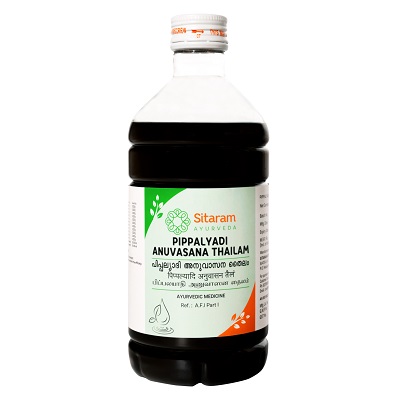
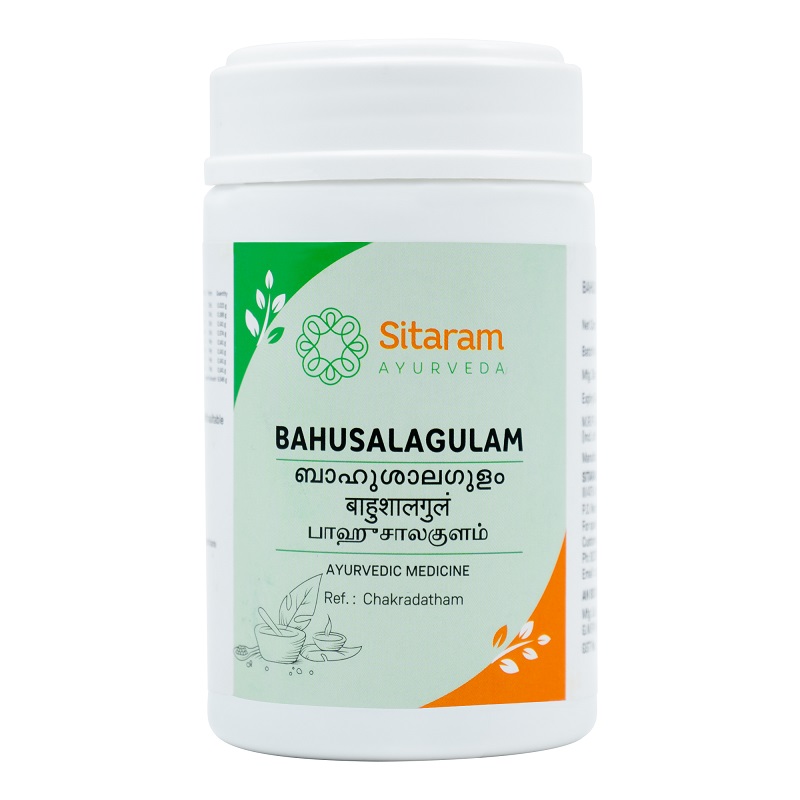
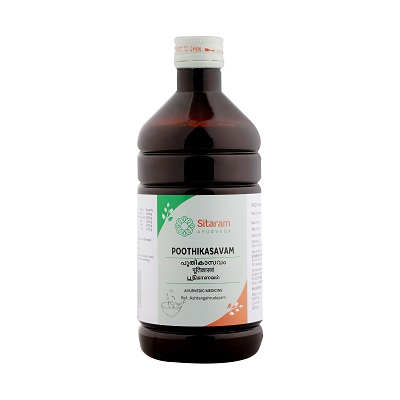
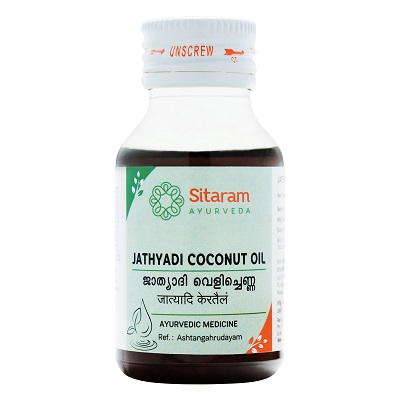
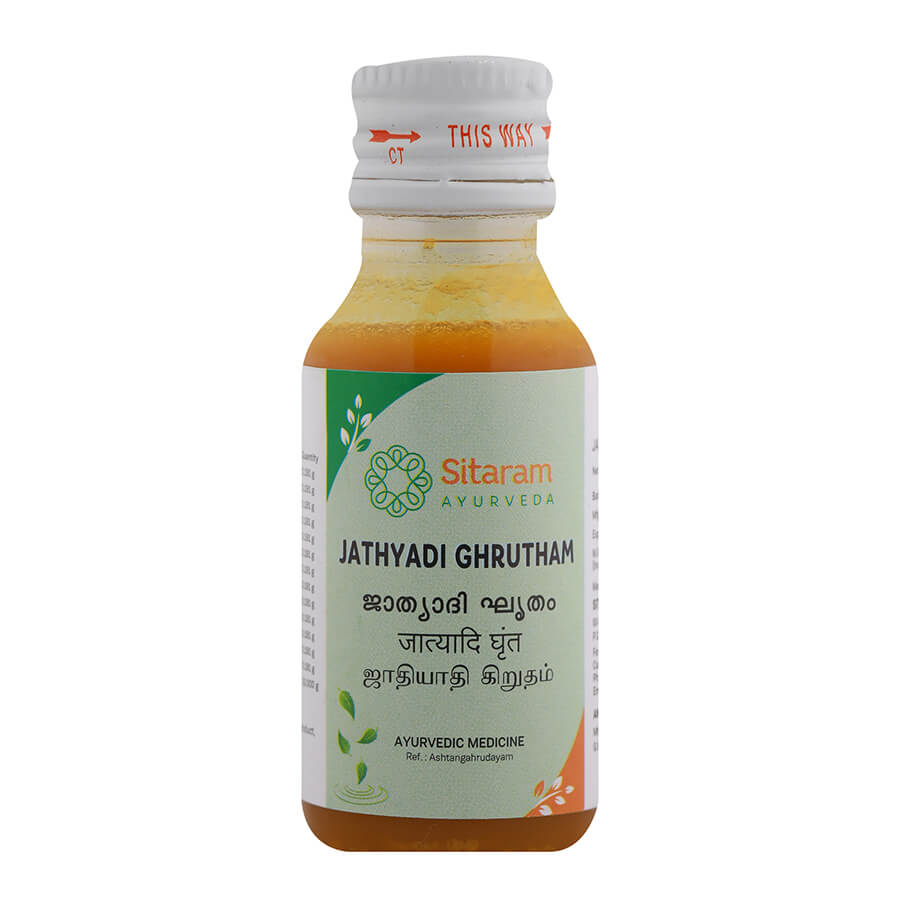
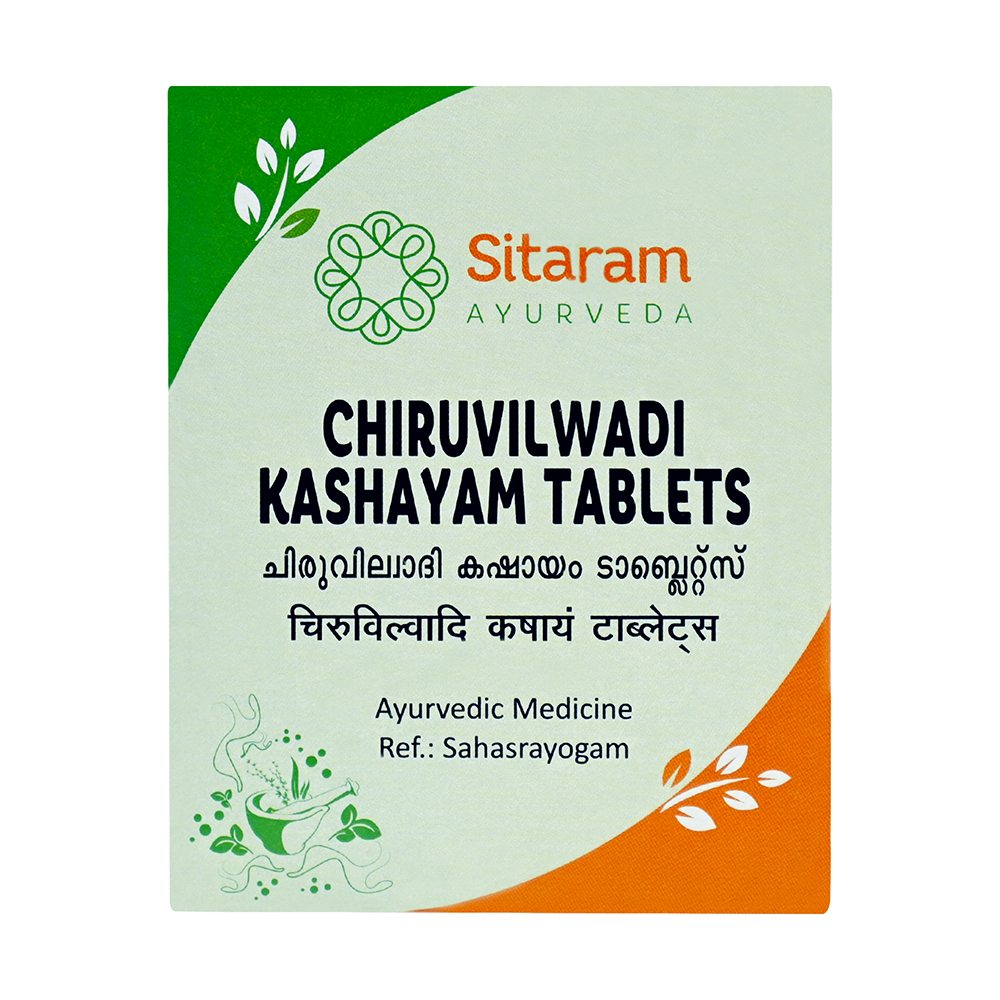
Reviews
There are no reviews yet.